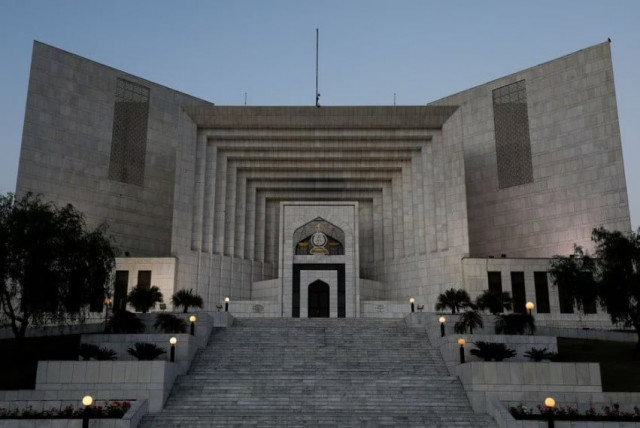SC law case adjourned indefinitely
Eight-judge bench could not resume hearing due to one of judges’ indisposition

The apex court has adjourned for an indefinite hearing of the petitions filed against the Supreme Court (Practice and Procedure) Act, 2023—a piece of legislation that seeks to curtail the powers of the chief justice of Pakistan (CJP).
An eight-judge bench was to resume hearing of the case on Thursday. However, it could not carry out the hearing owing to the indisposition of Justice Shahid Waheed, a bench member, according to the court staff.
The larger bench is led by CJP Umar Ata Bandial, and includes Justice Ijazul Ahsan, Justice Muneeb Akhtar, Justice Mazahar Ali Akbar Naqvi, Justice Muhammad Ali Mazhar, Justice Ayesha Malik, Justice Hasan Azhar Rizvi besides Justice Shahid Waheed.
On Thursday, a court employee informed Attorney General for Pakistan (AGP) Mansoor Awan and other counsels that the CJP wanted to meet them in the conference room.
During this meeting, the AGP told the top judge that the government wanted to harmonize two pieces of legislation related to the apex court— the Supreme Court (Practice and Procedure) Act, 2023 and the Supreme Court (Review of Judgements and Orders) Act, 2023 but could not do that so far.
He said the parliament’s budget session is under way and the government cannot introduce legislation for harmonizing the two laws right now. He requested the CJP to list the case for hearing after passage of the federal budget.
Read Top court clubs pleas against review law, Punjab poll order
At the last hearing on June 1, AGP Mansoor Awan admitted
that there is some overlap between the Supreme Court (Practice and Procedure) Bill, 2023 and the Supreme Court (Review of Judgements and Orders) Bill, 2023.
“The sections dealing with filing of review petitions and hiring counsels are somewhat similar in both the law,” the AGP said, adding that the scope of the Supreme Court (Practice and Procedure) Act, 2023 is broader as it includes sections related to internal working of the SC.
“There is a need to resolve the question as to which law should be relied upon,” the AGP added.
The CJP had welcomed the state’s top law officer’s statement but noted that the government should have consulted with the Supreme Court while drafting laws that deal with the working of the court.
“There shouldn’t be unilateral legislation with regard to the judiciary. The government should have held consultation with the Supreme Court while making laws with regard to internal administrative affairs of the judiciary,” he had observed.
On March 29, the National Assembly passed the Supreme Court (Practice and Procedure), Bill 2023, which sought to reduce the CJP powers to take suo motu action and constitute benches. The Senate endorsed the bill a day later on March 30.
The president, however, returned the bill to the parliament without signing it. The eight-judge larger bench of the Supreme Court on April 13 “pre-emptively” stopped the enforcement of the bill while hearing a number of petitions filed against the legislation.
However, the bill became a law on April 21, despite the top court’s order.


















COMMENTS
Comments are moderated and generally will be posted if they are on-topic and not abusive.
For more information, please see our Comments FAQ